Your login information returned multiple users. Please select the user you would like to log in as and re-type in your password.
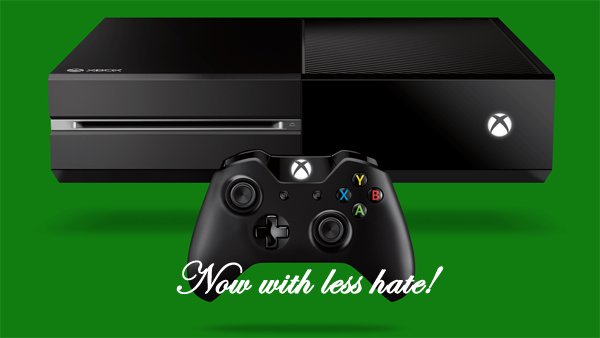

[Please note: the last few weeks of news has hit us all like an unstoppable tsunami and even a week after E3 we’re still sifting through a murky ocean of truths, trying to discern corporate rhetoric from public perception, fact from fiction. I, Chris Davis, in my own words, will attempt to share my opinions in this piece in what could be a stream of incomplete thoughts and incorrect assumptions. Please don’t hate: I’m just thinking aloud. If any of what I’m saying comes off as an insult to the reader I do apologize as that is not my intention.]
It’s an amazing time for gaming, that much can be said with absolute certainty. Eight years have passed since Microsoft released their successor to the first Xbox and the world has changed dramatically for us. This November will mark not only the biggest time for launches in recent memory but also the beginning of a new era in which we will be forced to discard some of our old habits and embrace new rules for technology. There’s a lot to look forward to but there’s even more that we need to discuss.
The evening of November 21st, 2005 was an incredible one for me. I had just turned twenty the month before and the Xbox 360 marked one of my first major purchases unassisted by my parents. I drove home with three titles: Call of Duty 2, Perfect Dark Zero and Kameo: Elements of Power. I remember plopping down on my bed, hooking up the fresh new system to my massive 30-inch CRT television which came with a rather incredible 1080i resolution and inserting Johanna Dark’s newest adventure into the disc tray. It was Thanksgiving weekend and I had saved up my sick days (something I truly miss with my current job) so I had all Thanksgiving week off. I powered through all three games in a matter of days and thanks to a subscription to Hollywood Video I was able to get ahold of another three games. In a week I had played or beaten nearly a third of the system’s launch lineup and it was a painful morning when I had to go back to work the next week.
So, why did I bring this up? Well, I mention it for two reasons. For one, it’s been eight years since the seventh generation of consoles began. I’m going to turn twenty-eight before the new systems arrive on store shelves. I’m at a point in which I have to stop the fun but aimless nonsense I began enjoying ever since I left high school. I need to begin considering what I want to do for the rest of my life. I need to find a person that would love me just as much as I would love her. I want to be a dad someday. I want to own a home, have a job that I enjoy and can provide for a family and I want to do my parents proud of me in discovering what life has to offer. All of this means that, I fear, I will have to begin slowing down. No more days on end beating games. No more hundred hour RPGs that demand an incredible amount of my time to complete. No more staying up past midnight playing online with friends who I will most likely never meet in person. It’s not only a transition year for games; it’s the beginning of a transition period in my life.
The other reason I bring up that fond period nearly a decade prior is that I cannot recall a single launch period in my gaming career in which we had so much more hope and promise. The stories and games for both consoles, both the Playstation 4 and Xbox One, that will arrive this November and beyond look to astound. In eight years we’ve gone from simple user interfaces to complex operating systems that allow you to watch TV, download or stream movies and music, and offer you a social experience that, frankly, only existed in one form back then: Myspace. Consoles are leaps and bounds more technologically advanced today than their predecessors were and new ideas will continue to change our perspective of just what entertains us in the living room.
If you’re still with me at this point then you have no doubt gleamed that I’m nigh ecstatic for what’s coming in just a scant few months.
When Sony announced their new console two years after it probably should have been released, we were all excited. The period between February and May was one that had us all on edge, watching every corner of the internet for a sign of what was to come and, more importantly, what Microsoft would be offering. And then, the rumors began to spread. Unconfirmed design documents told tales of what the next Xbox would contain under the hood, spinning yarns of items we were neither interested in nor what we truly cared about: the games. After all, they call us ‘gamers,’ not ‘consolers.’
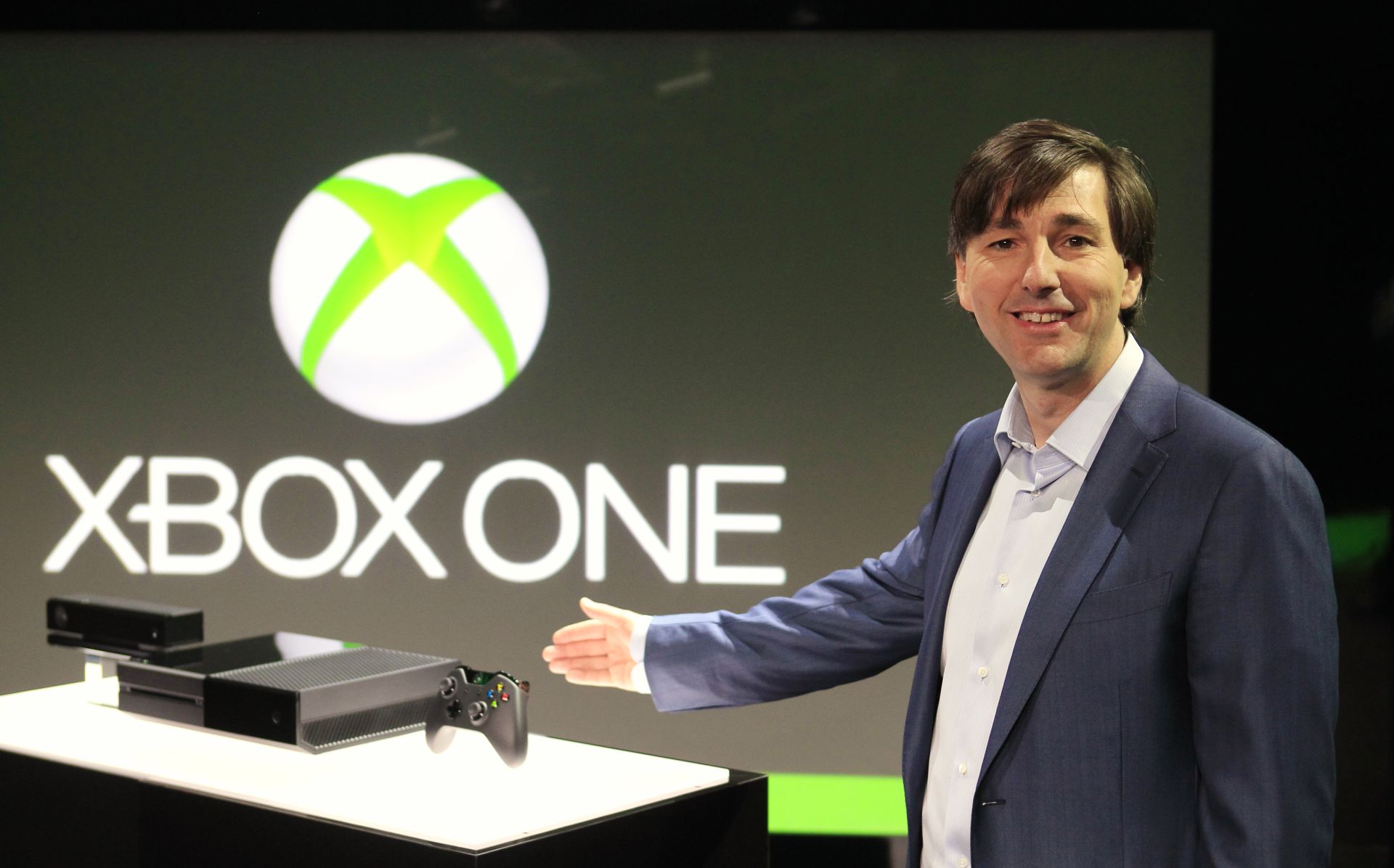
Let’s be blunt for a second: Microsoft’s campaign for this system has been a disaster for longer than we’ve known the actual name of the product. The wait time between February and the actual announcement of the system was a terrible decision and one that Microsoft has been paying for ever since. During that interim, developers could not announce official support for the non-PS4 console. Leaked documents without responses from proper marketing teams beyond the ‘no comment’ line were everywhere. The continued silence from the manufacturer drove potential and previously loyal customers toward the competition. By the time May 21st rolled around, despite all the hype, people seemed to be more worried about the system than they were excited for it. And what did we get? A hardware announcement that was not aimed at its core consumer base. Rather than target those that would definitely be entering the next generation, Microsoft appealed to the armchair quarterback, the broskie, the social networker: in short, not the true gamer.
Microsoft’s announcement of the Xbox One in May was a failure but E3, in retrospect, was even worse. The one thing that Microsoft did right was show off games and, man, did they ever. Dead Rising 3, Killer Instinct, TitanlFall; all of them look fantastic and I can’t wait to play them. The problem with that, however, is that’s all they showed. We were forced to learn more about the OS, the system architecture and more outside of the press conference. All we got was a price and a release window, nothing else.
This is the point in which Microsoft completely and utterly ruined itself in front of the internet mob: the message. E3 is a time in which the penetration of a product into the mind of the consumer is at its maximum potential for gaming and yet Microsoft failed utterly in this department. Now, Bill Gates’ empire has had PR failures in the past: look at the launches of Vista and Windows 8 for example. However, this, in my opinion, is by far the biggest debacle the company has experienced in my lifetime. But who is the culprit? Not Don Mattrick or Phil Spencer or Larry Hyrb (though I will say that the former two quite enthusiastically grabbed that shovel when they were told they were digging their own graves). No, it was the marketing department.
Now, I’ve never taken a marketing class before and my degree only deals with one half of the term “press relations.” However, it doesn’t take too many brain cells to figure out that, when you are marketing a high tech entertainment device worth more than what a lot of people make in a full work week that you need to project a strong positive message but, more importantly, a concise one. You need to demonstrate a singular message and, when faced with a technical question or one that you are not allowed to reveal information about just yet, you do one of two things: you either pass off the question to a person who knows far more about the subject or you simply say “unfortunately we can’t reveal that information today.” It’s simple and easy to do. In an age in which transparency is ever increasingly seen as a very important aspect of producer/consumer relations, you need to make sure that you are honest but, more importantly, that your answer is both correct and matches up to the core message you are trying to sell.
That’s not what we got on May 21st and it has plagued Microsoft ever since. The afternoon after the console’s announcement was a terrible mess of miscommunication, mixed messages, and failures to explain things adequately to the press and public. For an event that was already under scrutiny before it even began, by the end of the day, Microsoft had failed to find any enthusiasm in the press. While I wish I could have been there myself, there was an unspoken message seen clearly in all the videos and write-ups that appeared that day and during the following week: confusion, dissatisfaction but, more importantly, hope that this was as bad as it gets. If only…
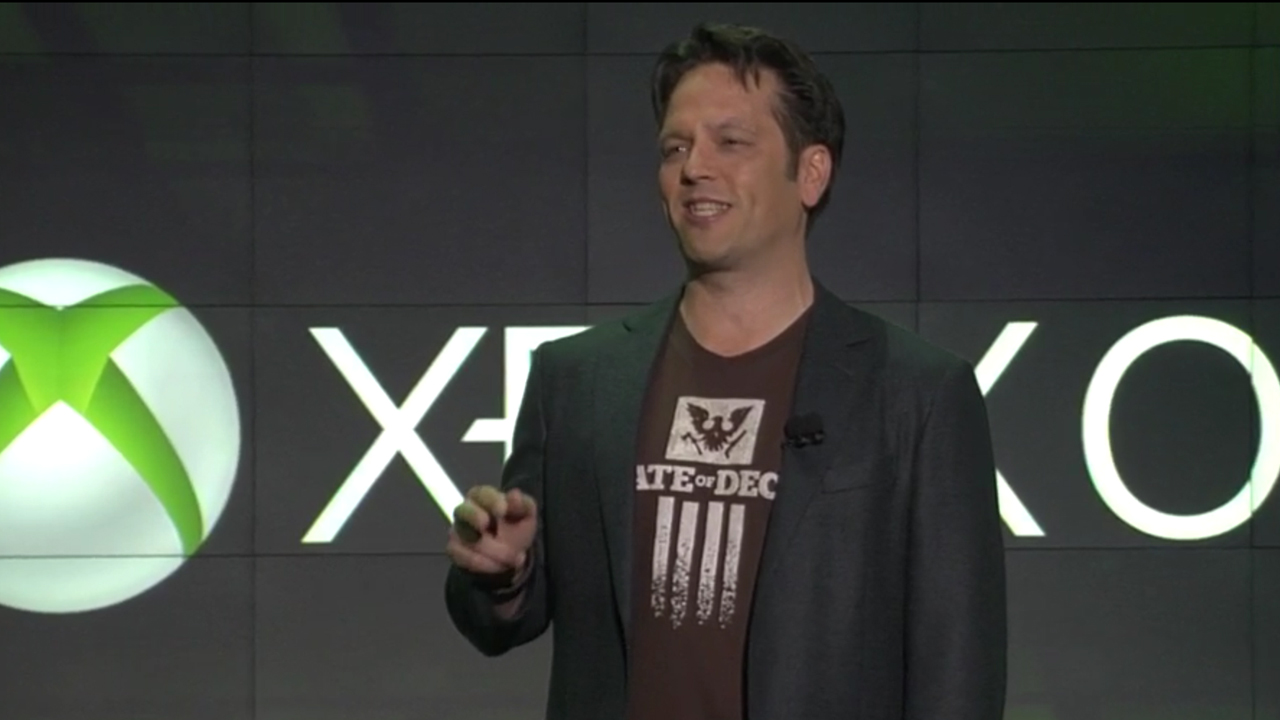
This failure to communicate on Microsoft’s part continued on past that day in May and held strong until this week but before we get to that, there are a few things I’d like to address. Firstly, I must both condemn and pity Microsoft’s marketing department at this point. If it isn’t clear by now, there was anattemptat a strong amount of control on their part to rein in the message. However, going with what I said a couple paragraphs above this one, your message needs just a hint of slack to be reactive to what’s going on in the press and public’s eyes. Though it should be lamented, those in marketing need the ability to properly spin something from a negative into a positive. Even when faced with opposition you must ram your point home and do your best, within message, to turn the tide. It’s also basic sense that you don’t let executives answer technical questions and you don’t let technicians and engineers answer broad spectrum ones. If the person in question doesn’t know the full story or is not properly briefed, don’t let them speak! Get some intelligent, nice marketing people like Larry Hyrb to handle the message of broad questions and let a more briefed person with a background into the system’s engineering answer the technical questions. Microsoft’s marketing department failed in this regard and this will probably go down as the biggest tech debacles since Apple’s “antennagate” saga.
Secondly, I must talk about Sony and, well, how they brought down the house last Monday. On the Thursday before, Microsoft detailed more about their DRM policy and other items such as used game compatibility and the functionality of the Kinect 2.0. It seems that this was the point in which Sony pulled the trigger and (supposedly, according to unconfirmed reports) decided to do a no DRM, yes-used game policy. When it was announced that Monday night to a crowd of several thousand journalists, unlike the Xbox One announcement on 5/21, there were genuine cheers coming from all of us. This is something that Sony could have announced on the side, after the press conference or in a release some hours after. Heck, they could have said nothing at all and bided their time until months from now and they still would have come off on top in the eyes of the public. But no, Sony knew the impact such an announcement would have and they put it center stage in front of the eyes of the thousands in attendance and the tens of thousands watching online. It was a wonderfully smart idea and whoever made this decision, you deserve a trophy or something.
So, to conclude that part, let me reiterate: marketers need to prepare for negativity, have the right message said by all the right people, and must be properly reactive to what’s happening in the public eye. Alright, now let’s get to the system itself.
Let me start off this part by saying outright that I will be purchasing an Xbox One this fall at launch instead of a PS4. Now, there are multiple reasons for this. For one, I don’t want to lose my friends I already have on my Xbox 360. For another, I have had a subscription for eight years straight on Xbox Live. My Gamerscore is well above 100k and I’m proud of just how many great games I got to experience in that time. I believe that Microsoft has bred a more controlled environment for reporting hackers and cheaters with the 360 than Sony ever did with the PS3. But most importantly is something that not a lot of people who read this will immediately understand: I prefer the Xbox controller.
Now, I’ve had arguments with other 4Player staff but I believe that Microsoft has done some of the best controller design in the industry since they came onto the market. Let’s be honest with ourselves, ok? The Dreamcast was a nice system but it had a terrible controller. Sony was incredibly dumb in their attempt to not have to pay royalties in order to allow them to feature rumble in their PS3 controller and the Sixaxis was just plain stupid. The Wii, well... what is there to really say about it other than it wasn’t technically adequate for what Nintendo wanted it to do even years past launch? The same axis analog sticks of the Playstation controllers just don’t work well with my hands and, in the end, the Xbox designs feel right. When I got my hands on an Xbox One controller I was immediately sold. It feels like it has more grip, the weight of the controller has been redistributed making it feel better and the d-pad is worlds better than what was made before, perfect for the fighting game aficionados amongst us. The triggers with their new rumble feature are simply awesome and no longer feel like you’re just feeling timed vibrations to match what’s going on in-game. No, you can tell the difference in your hands. It’s a great controller and I can’t wait to see how it is utilized.
So, was I going to buy an Xbox One from day one? Well, no, actually. Now, the above reasons (minus the controller) were my strong ties to Microsoft’s next system but after months of speculation, rumors and more, I was wary of the system. I remained hopeful that Microsoft’s worst had been said and that E3 would be all sunshine and lollipops for gamers. On Thursday, June 6th Microsoft announced the DRM and used game policy outlines I mentioned. That ticked me (and countless others) off but, like many of my press brethren, I was convinced Sony would do the same.
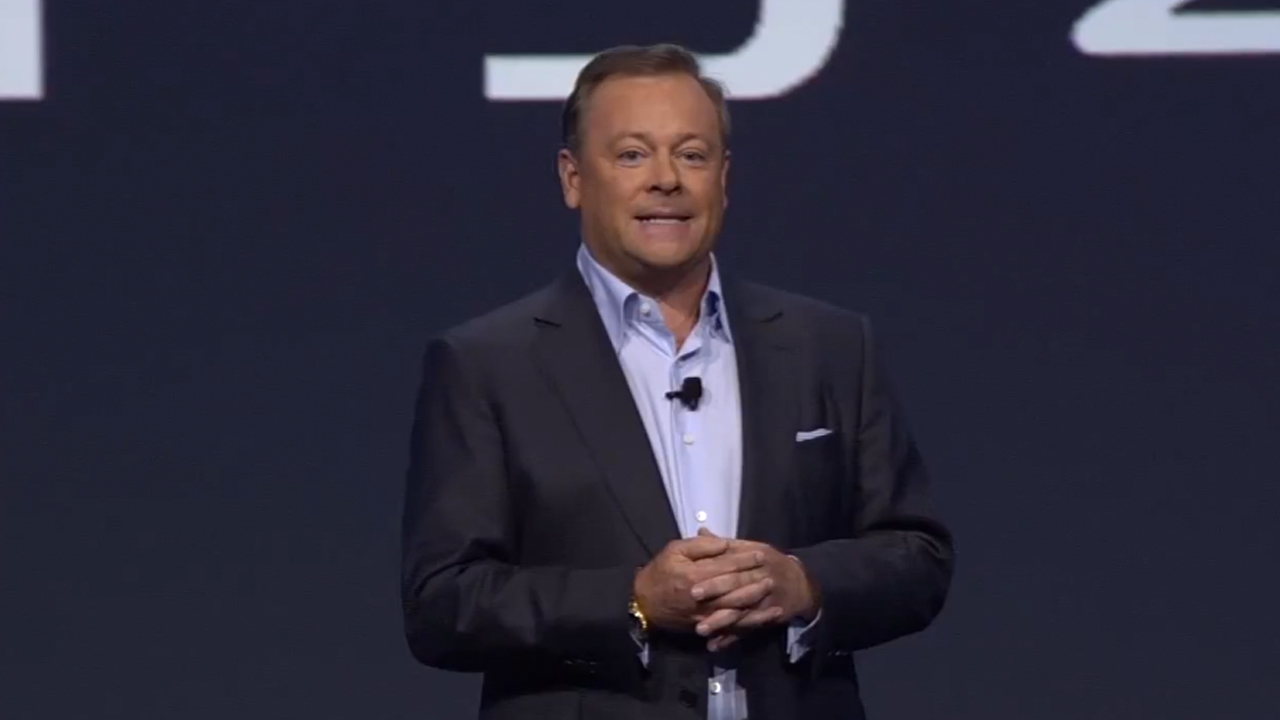
And then Jack Tretton dropped the mic. At a little after 7:30pm PST that Monday night, I decided my purchase would be a Playstation 4. And yet, just yesterday I switched back to the Xbox One. So, why did I switch back? Well, the answer is simple: Wednesday night’s rather dramatic reversal of said policies. Those were the only two items that were really holding me back. Price? I can swallow. Kinect? Very few titles were demonstrated for it and I probably wouldn’t buy them anyway unless they had EndWar in the name. I feel though that I have to talk about Microsoft’s DRM and used games policies so if you are one of the five people still reading this first off, thank you, and second, here we go.
I’ve made it no secret about myself that I am pro-developer. I believe that these developers that take years of peoples’ lives to complete a vision of a product deserve to be fully compensated, especially at a time in the industry in which bloated budgets make the fate of entire studios hinge on a single title. We are no longer at a point in which publishers are willing to invest in new ideas and when a stellar studio like Double Fine has to resort to crowd-funding in order to make new games, you know there’s a big problem. Many put more money into marketing than they do the games themselves, a ludicrous practice that needs to be abolished. So, how do they try to maximize their sales intake? Well, one method is to drain us dry with DLC but another is rather simple: they treat all gamers equally, and by that I mean like a criminal.
Digital Rights Management is something that has been rather poorly implemented on the PC and it has been dreaded that digital distribution systems like Origin and Uplay would become the DRM platforms of tomorrow, restricting when and how you can play games and in what capacity. Steam was the earliest form of DRM that most gamers experienced and, indeed, there was quite a bit of strong negativity toward the platform initially. Why did that change though? The answer is simple: Valve didn’t treat you like a pirate. They banana built a strong community, had good customer service and placated us with sales galore. We didn’t need to be connected to the net to play singleplayer games. We have an ever growing platform that puts the community first before the product.
And yet, outside of Steam, we continue to see the troubles of DRM even eight years after Valve’s system launched alongside Half-Life 2. Blizzard’s epic controversy regarding the launch of Diablo III last year is a prime example, not to mention the issues surrounding StarCraft II. More than any other form of DRM, ones that utilize a persistent online authentication system are lauded as the worst of the worst. Sim City’s release in March is another great example of how DRM is done wrong. Why in the hell did Ubisoft force you to stay connected to the internet the entire time in Assassin’s Creed II? The answer: the fear of pirates.
Piracy is a terrible problem in the industry and just a few minutes of searching on BitTorrent will tell you why. Ungrateful jerks who feel that they are entitled to play anything they want anytime, anywhere for free are really hurting gaming and the worst part is that it is incredibly easy to do this. Why, in just a few minutes I could have a torrent of Bioshock Infinite going and the only thing I would have to spend would be the time waiting for it to download, not the money the developer deserves. It’s a rampant problem on the PC but despite appearances to the contrary, it’s also a problem on consoles. To use a recent example, Alan Wake was the second most pirated game on the Xbox 360 in 2010. This (coupled with other problems) has resulted in Remedy being forced to work on a new IP instead of a sequel to their rather great semi-horror series. I’ve said it before and I’ll say it again: if you pirate games and don’t pay for them after playing them, you are a thieving asshole and you deserve to be punished.
The thing is though that a console is a far less accessible system for the average pirate. A pirate with a competent system would much rather download and play a game on their PC without going to the trouble of physically cracking their system open and installing custom chips and drives just to play on their TV. So why did Microsoft feel that DRM for consoles system was necessary? Honestly, I don’t have a clue. With all new encryption systems, new tech, new everything, I don’t see why this system was a requirement on a manufacturer scale. If you know why I would have to connect to the internet to play a single player game on my freaking console, tell me in the comments, I really want to know.
Beyond just the customer-relations implications of a DRM policy on a console, you also have to consider the technological implications and demands of such a system. The Organization for Economic Co-operation and Development (OECD) is an international group that studies economic development in 34 different countries. Every year they release tons of economic data but, in particular, they study access to the internet. As of one year ago this month, broadband coverage of the target market for the Xbox One, the United States, stands at roughly 68%. This means that one out of every three Americans does not have access to broadband. In addition, current broadband penetration estimates (ie. people who actually use broadband) stands at an estimated 88 million Americans. The US Census Bureau estimates as of 2012 that above 313 million people live in our country. As such, this means that only one in four Americans use broadband at home. So, with a DRM policy like Microsoft was planning, only one in four Americans would actually be able to use the system.
Another issue is internet reliability. Now, if you are familiar with the US geographically, you shouldn’t be surprised that our nation is home to one of the most diverse sets of environments on the plant. We have hills, forests, swamps, plains, mountains, deserts, tundra, lakes, rivers and so many more things that have to be traversed. Most of us today live in urban and suburban areas where technology penetration is at its biggest. However, going with the statistics listed above, this means that a very, very strong number live in areas outside the access range of broadband providers. Now, since I live in Austin, TX I not only have easy access to broadband, I also have a variety of options to meet that need (yay Google Fiber next year!). If I were to drive 10 miles outside of town though, the possibility of getting a proper connection greatly diminishes. The American Customer Satisfaction Index annually releases results of surveys regarding how satisfied people are with various different commercial entities. Would it surprise you to learn that cable and internet providers, the industry in which Microsoft’s DRM policy would require customers of if they wished to sell their product, was rated dead last this year for service and reliability?
In thinking about it, I feel that Microsoft’s DRM plans for the Xbox One were meant for the broadband public of tomorrow, not today. If the United States’ broadband infrastructure was equal to that of South Korea’s (they have a 97% coverage rate) I think that it would be technologically possible to implement such a system. As it stands though the eighth generation of consoles is coming out at a time in which this system would not be effective. Perhaps in 5-10 years when penetration is far larger (say when half of the US is subscribed to broadband) would it work but it’s simply too early.
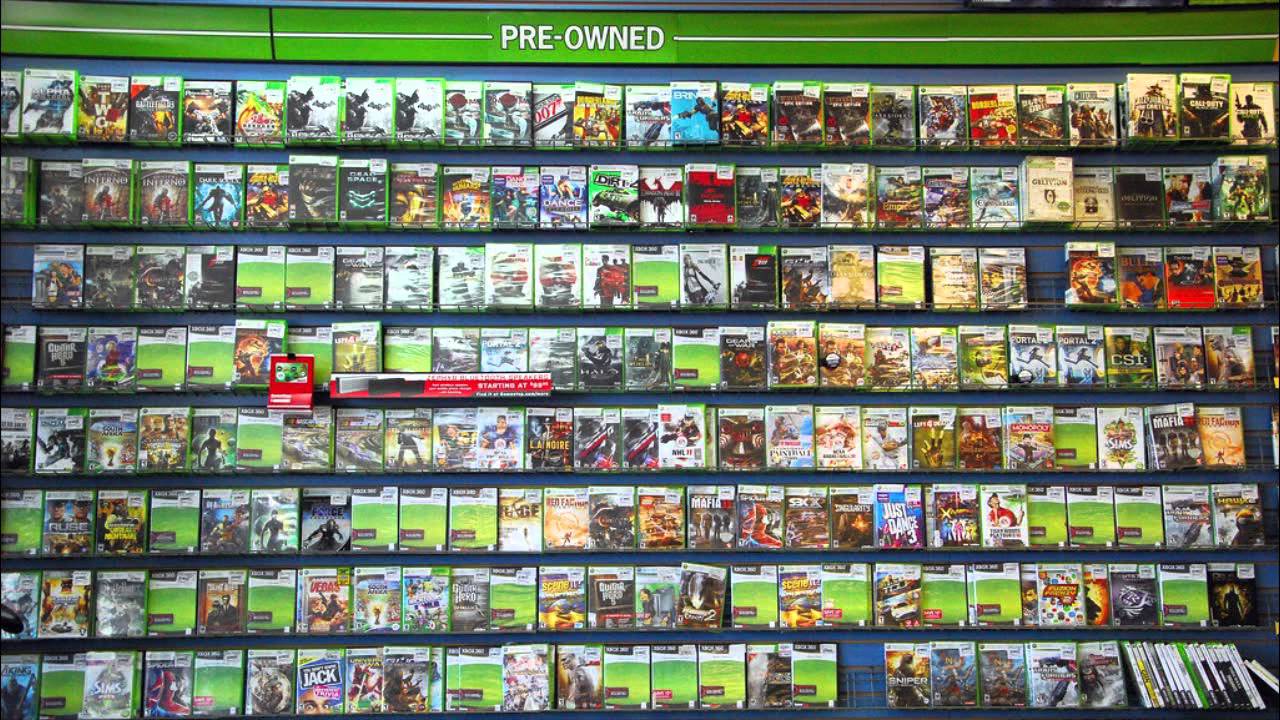
Used games are something I’m on the fence about. Now, I think you should know that I haven’t purchased a used game willingly (games two generations or older this day and age don’t count) since 2009. In addition I have not traded in a used game since then. I want every penny of my money to go to the developer because, as I stated before, they deserve it for years of hard work. I do understand the plight of the expense of games far too well though and I appreciate people who want to play games but can’t afford them. For the health of the industry we need to transition to a state in which we don’t have used games on the market, that much is certain. However, I can only advocate for such an action if strict conditions are met.
The first and most important thing that would need to change would be a complete reworking of the traditional pricing structure. Games new at retail cost $60 and that’s already a pricey proposition. If the industry were to get rid of used games sales as a whole I would have to demand that we see a cross-the-board price cut of all games by 33-50%. I would also have to ask that we abandon the fixed pricing structure and allow flexibility in game prices. In other words, a variety of <$60 titles at varying prices instead of almost all of them costing what they currently do. Were you to say that to the face of any publisher out there however they’d laugh in your face and have you escorted from the building so that’s not happening.
I would also have to demand that we abandon the physical format entirely. The PC has been doing digital distribution since the 90s and really hit its stride during the latter half of the last decade. Xbox One and PS4 will be offering day one digital downloads and while I’m wary of an “error 37” style launch issue I think that proper planning could result in a very smooth launch. It’s going to happen anyway and while it won’t happen this generation I’m a little hopeful for that shift to begin happening by the end of the decade.
Finally, I have to demand that we completely reword Terms of Service agreements. You know, that long block of text that we never read and just click ‘accept’ for? Yeah, that thing. Simply put, we need to have an industry-wide rewrite of many of the fundamental aspects of these agreements. At a time in which we have to question what we really and truly own versus what we are granted a license to access, we need to tell publishers that we own the games we purchase and are not renting them.
For now though, as it’s getting late, let me begin to close out things by addressing two more things such as the so-called Family Sharing plan Microsoft had been planning out for the Xbox One but subsequently revoked plans for it alongside the DRM and anti-used game policies. Following the announcement, a Pastebin post from a supposed “Heartbroken Microsoft employee” went up describing what could have been with the Family Sharing plan. Before we read in to this (Zach did a nice writeup on it which you can read here) I must say that this was debunked by Aaron Greenburg himself, stating that the program was as described: you can share a game with ten “family members” and only the head of the plan and one other person can play the game at any given time.
It’s really a shame that this program had to go away but I don’t believe it to be really and truly gone. Looking over the way Microsoft plans to implement digital distribution of retail titles, I don’t see how this program could not extend itself to titles bought via download. If indeed this program was designed to function with all games coming down the pipe, both arcade titles as well as full retail releases, this means that the foundation exists to allow a Family Sharing plan. All we need to do is ask and I’m certain that Microsoft will hear us out proper.
And speaking of, one final note I’d like to leave you on is this: our voice. Every one of you who wrote, spoke out, made videos, commented and, most importantly, used your wallet to voice your opinion on Microsoft’s failure to meet common sense standards for a console launch should be commended. Until the announcement on Wednesday I would never have believed that we, as consumers could have been so powerful as to influence such a major aspect of a system as DRM and used game sales, especially in the face of publishers like EA that actively practice anti-consumer programs. It’s simply remarkable in my eyes. All of you should be very, very proud.
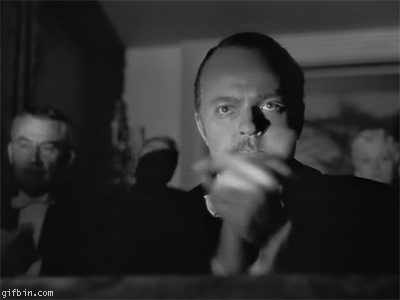
Anyway, I need to bring this to a close so let me sum up everything you’ve skipped through to get down to the final paragraphs. Microsoft made bad decisions. We called them on it. Rather than ignoring us, they relented. We won, but we need to remain vigilant. We need to make sure that such a massive mishap doesn’t happen again. Pay attention, listen and stay informed. Good work, guys. I can’t wait to share with you the Xbox One launch line up this November.
PS: if you’ve reached this far and didn’t just scroll through, thanks for reading. Those who find the rather out of place word in the middle of it all win a special prize: my love.
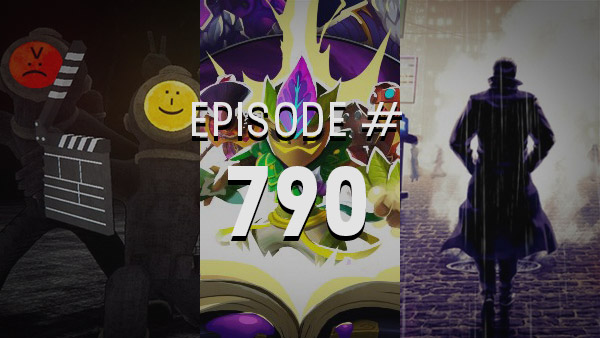
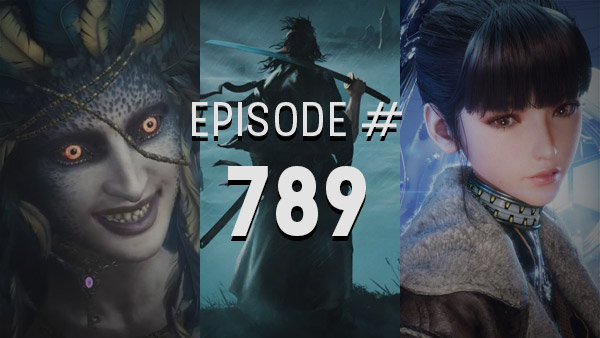
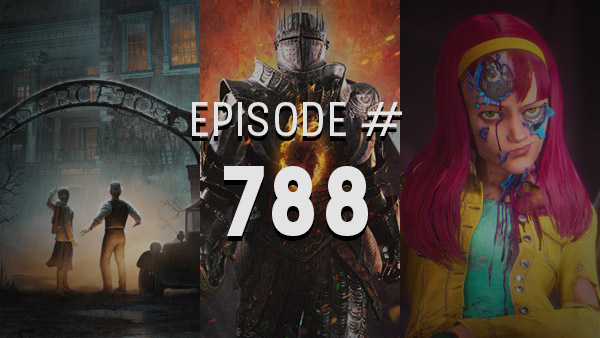
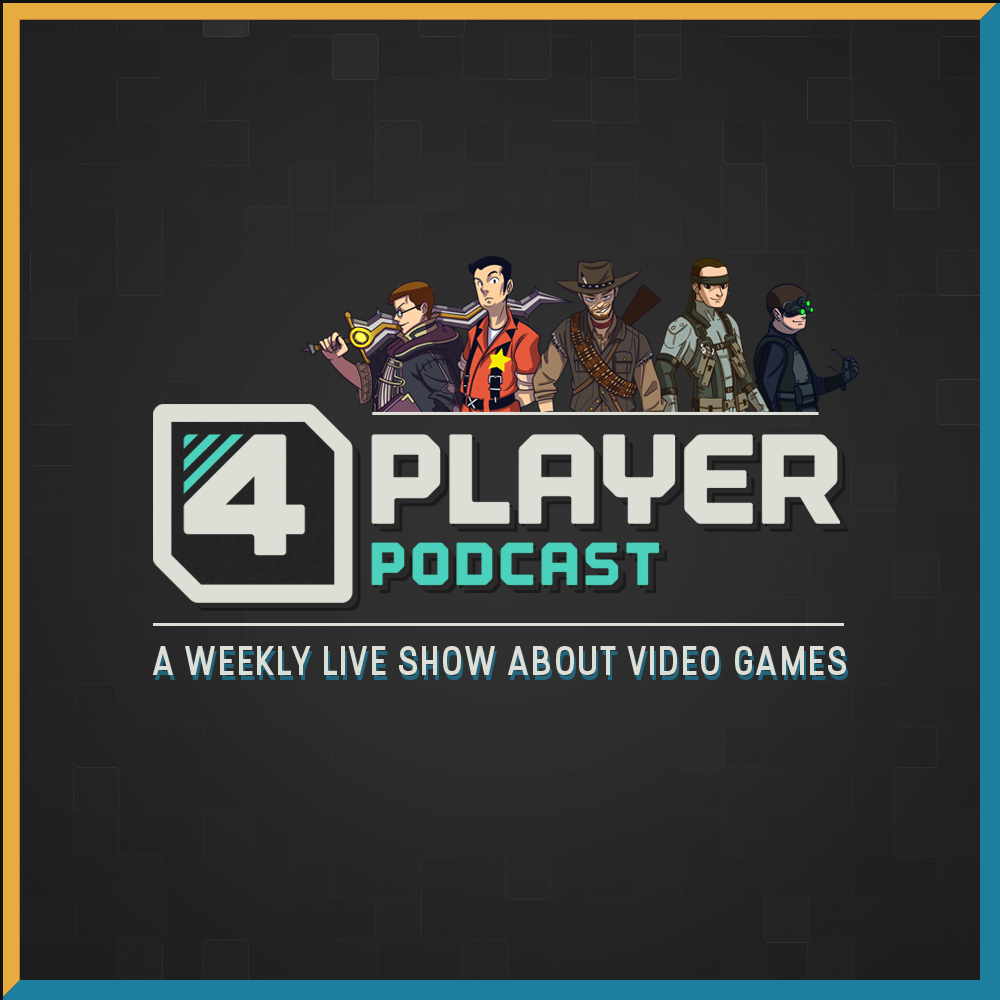
Comments
10 years, 10 months ago
What a great informative article it was nice hearing your thoughts on all these subjects, I personally won't be getting an X1 on launch because of the price and because there probably won't be much support for obscure Japanese titles (something I tend to enjoy).
10 years, 10 months ago
I'm getting the PS4 at launch.
It was more of a culture decision for me than anything. Sony had a more diverse palate of games, a more cohesive message, and better music during their press conference, and didn't sell the NFL as a feature rather.
Great article though!
10 years, 10 months ago
Great article! I was in the same boat as you were regarding which console to get first. After E3 I was sure that I was going to get a PS4 first, both for its lower price and its policies. After Microsoft's reversal on its policies, as well considering exactly the same things you considered in your article (established gamer profile on Xbox, better controller) I decided to go with Xbox One. Getting it first day remains to be seen, but I am for sure getting the Xbox first. I'm also hoping that when they eventually stop support for the Xbox 360, they will allow you to play your purchased games (hopefully at least the arcade games) through some service they will release later on the Xbox One.
That being said, I still do want a PS4. I will be getting it eventually, most likely when it goes on sale or is released through some bundle. I don't want to make the same mistake I did this generation, where I missed out on great exclusives like The Last of Us, as well as the perks that come with a PSN+ subscription.
10 years, 10 months ago
This struggle/iron-triangle relationship between developer-publishers, console manufacturers, and the gaming crowd is always interesting. As much as I want cheap games, I heartily agree with the fact that developers are largely suffering due to the rampant piracy that's going on. The fact that there are also plenty of games/distribution systems out there that serve as an alternate source of entertainment at a much lower cost/for "free" (especially more competitive games such as the MOBAs out there) doesn't help this pull away from well-made games.
I feel that just creating a culture of paying for it and smarter anti-piracy tactics would be the RIGHT solution, but clearly not a feasible one. An analogous problem lies with small bands and music production companies nowadays, but the number of titles for the game industry are much more smaller and able to be targeted much more easily. What a friend in the EDM field tells me is that events such as live concerts, which don't translate well via piracy on YT, are starting to become the mainstay of musicians who need the money. So until a generalized anti-piracy system with a high enough barrier becomes known, perhaps another way to stem the tide would be to find some smarter way to add content that's only second-rate after being pirated.
10 years, 10 months ago
Aside from a few clashing statements, that was a nice piece, Chris. I wish I could maintain your level calmness when it comes to this discussion, but after spending most of my mature gaming lifetime with the Xbox 360, being steadily belittled and made irrelevant by Microsoft's choices, I have trouble supporting the Xbox One.
And, let's face it here, anyone who thinks Microsoft actually listened to their customers is fooling themselves. Microsoft doesn't do heroics. They don't listen to the customers; they listen to their wallets.
10 years, 10 months ago
I find it astounding how many people still think internet access is universal. Then again people skateboard without helmets and snort condoms so maybe I shouldn't be surprised.
10 years, 10 months ago
Very nice article with a great deal to think about.
It's possible to summarise the recent remarkable xbox 180 as enabling those who were on the fence or minded to choose an xbox one as now being able to do so unapolagetically.
For myself Microsoft lost me on the pricepoint which was also connected with Kinect. I simply do not understand trying to force this on gamers when the dashboard and system do not need it to function. It's inclusion is almost certainly responsible for the xbox one's far higher pricepoint. If it really is an impressive pice of kit then sell it separately as the peripheral it so clearly is and let the consumer choose.
I too am very fond of the xbox 360 controller and it was a definite plus for me for the xbox. No question the xbox one controller looks excellent and extremely well designed. The new PS4 one is having fairly good reports but I would prefer to hear more on it ergonomically rather than the repeated 'it feels far more solid than the PS3 controller'. Crucially though I could use a PS2 controller and I was fine with it so the PS4's won't put me off that console.
"don’t want to lose my friends I already have on my Xbox 360."
This cannot be stressed enough. Before Microsoft made such a colossal mess of things that alone was giving them a huge edge and now that so much has been sorted out it could well come back as a major plus point for them. However, the momentum is with Sony and friends will go where other friends are gravitating.
I'd also point out that Xbox Live Gold is a shit sandwich IMHO and despite some small improvements I am far from happy with that service. I for one will not miss it at all.
I'm very fond of smaller indie like titles and Sony look to have have done all the right moves there which is a plus for the PS4 in my book.
The bottom line is there will now be a far closer competition than looked likely mere days ago and that is unquestionably a good thing for gamers.
What we want is some totally new game IPs to come out of the blue and blow us away whichever console we choose, Hopefully that will be the most welcome surprise of all for gamers in this next generation.
10 years, 10 months ago
"I would also have to demand that we abandon the physical format entirely."
This I vehemently disagree with. Because people say that the physical book format is dead thanks to E-books but in fact people are buying more physical copies of books rather than on their Kindles. Why? Because they're cheaper. It will happen with physical copies as well and people will start buying those more once digital formats will be the main way of buying games because Sony and MS will make them cost more while leave the physical copies cheaper. And besides there are still people out there like me who still love to have their own physical library on their games because we have pleasure of owning things with our own personal property, while in digital format it isn't the same because they're part of a network and you can't call it your own private property. Physical media will never die, otherwise the people who make physical media will be out of jobs.
10 years, 10 months ago
I would voice my opinion on this but the immaturity of today's gamers makes have a level discussion just depressing.
That was a good read, a bit painful on the eyes but well written. :)
"Xbone is baaad, it haz a cam, duuuuuuhz!"
10 years, 10 months ago
Fuckin' Chris, man. Putting "banana" in a spot/post where it doesn't belong.
10 years, 10 months ago
Wonderful post Chris took me a bit of time to read it but it was very insightful. For me I'm still getting an Xbone for a lot of the reason you posted, but I'm never going to hope for an all digital future that idea of it all being on a hard drive bother me to no end.
I like having the disc in my head and being able to look at them on my shelf, digital copies just seem so empty its a strange way of seeing it I'm sure but that is the future of gaming even if its a future I'm not that excited to see.
I also have a history with used games, I do get them pretty often but never for new titles I can find new. So if i look for it and can't find it new I'll just get it used but only then. So i'm for used games but only if its past the date of finding any new copies or if your just really broke.
PS: Tie Fighter 2014 is an awesome game :B
10 years, 10 months ago
It's refreshing that most posters have moved on from some of the obvious fanboy stupidity to actually discussing the merits of the systems as Chris has done.
It's still worth pointing out that Sony isn't a charity and their decisions are just as focused on profit as Microsoft. The difference is Microsoft have conceded Sony got most of their strategy right with the xbox one reversals. However, this does not let Sony off the hook and allow them a free ride with consumers. The fact that they too have jumped on the live subscriptions for online gaming as well as their recent problems with updates should be a warning to those who have forgotten that Sony is also no stranger to controversy and making very big errors. They are reaping the reward for Microsoft's public relations idiocy right now but that hardly makes them infallible.
There are few things more tedious than playstation and xbox fanboys blindly dismissing all criticism of their consoles in a juvenile way rather than engaging in the substance of the strengths of the two systems. Both will find a market and both have sound reasons for buying them. The fact that gamers will consider some features of both to be more or less important is inevitable and down to personal taste just as much as the type of games they prefer are.
We shall have to wait and see what else occurs between now and them going on sale but it would be surprising if there are any other massive changes like the one Microsoft just made. Perhaps more detail on the rumoured subsidised xbox one deals, some more firm details on the technical specifications of both as well as more detail on the initial release game launch windows.
10 years, 10 months ago
Well that's quite an article Chris , I can see you had a lot to say on the matter.
Despite some contradicting statements that may have been presented as counterpoints in places it was well written.
I can see that even after all the bad press you are willing to give Microsoft the benefit of the doubt which is admirable and a credit to other loyal fans such as yourself.
In relation too the change in policies , I would have believed Microsoft in their claim that the 180 was due to public outcry had they done it before taking pre-orders but as it stands the most obvious answer wins me over on this one. Low pre-order numbers forcing their hand is more believable, whether or not its true we may never know.
I do agree Broadband and internet services are not where they needed to be for the types of features that were present in the X-Box One and MS decision to go back on previous claims was a brave one.
As for the controller and friends list argument,
# I wont be letting my friends choices influence me out of what I feel is the better console at the end of the day
# If a game is good and engaging a controller is a moot point.
(This is just me personally but) Once I'm "playing" a game I really don't notice the controller, and this is on both systems.
In regards used games stealing money from developers, I'd like to think supporting a store that sells new games (ie Gamestop) by buying old ones is a lot better than torrenting them, but Developers should be fully supported regardless.
As for abandoning physical format I think that will happen eventually on its own and shouldn't be forced.
In closing
I'm not trying to talk you out of there decision just voicing my opinion, Keep up the good work.
Finally for those who read my whole response I too did read the whole thing, the "word" is plant and is replacing planet in the 26 paragraph 2nd line (At least I hope it is ?)
10 years, 10 months ago
Very well written. Formed by jungle fruits, ohoho.
I respect your opinion and understand it, I think I'm just on the complete other side of the spectrum.
The couple of friends I've made through PSN are people I would bother to keep in contact with should I change to another system. So that's okay. I don't feel comfortable paying for XBL Gold, it's so pricey I feel obligated to play multi. I like my trophies, but they're not going to stand in the way of me getting a new system. They'll still be there, always a little digital footprint of how hard I played.
I absolutely understand you on the nostalgia and the controller. I got my Playstation for holiday when I was really young. I'd play a lot with my sister, or my mom or dad. Very good memories. Got the PS2 halfway through its cycle, picked up the PS3 carefully, getting the fat backwards compatible version. I've had a N64, Wii, other consoles in-between. The first "console" console (excluding Atari, arcade, PC, anything else) I played on was the SNES. Swapping from that controller to a PS controller feels like just putting on a different pair of pants. A little different, more comfy, a change.
I can't willingly support Microsoft after so easily throwing out a model to fuck customers over. Again, I agree with you on the internet availability and the problem of used games. At some point there'll be a fix for used/transferable games, but Microsoft's initial idea of controlling it is so.. hands-on.
More agreeing, the "first" Xbox One we saw was a system developed for dudebros and dudebro friends. As great as XBLA was for indie gamers, the industry has realized there are some diamonds in the rough there. So if Microsoft really had a huge leg-up to support independent developers, as in there was a system they'd have created that was ideal for indies, it still wouldn't make a splash, everyone knows there are small game groups out there churning out awesome.
I dunno. I have more to say, but this comment is long enough, oy.
10 years, 9 months ago
I wont get a X1 for a long time one i am like you Chris i like 360 controller more i have tons of friends and a good gamer score but the fact of their reversal dosn't mean they learned from their mistakes i think they just want me to buy their console plus a 100 dollars more and a stupid kinect that will never be taken seriously i feel as if ps4 has quality titles and that cloud service where you can access multi plat games in the sony library won me over but i will get a WiiU when pikmin3 comes out then a ps4 and when X1 goes down a 100 dollars then i will get it.